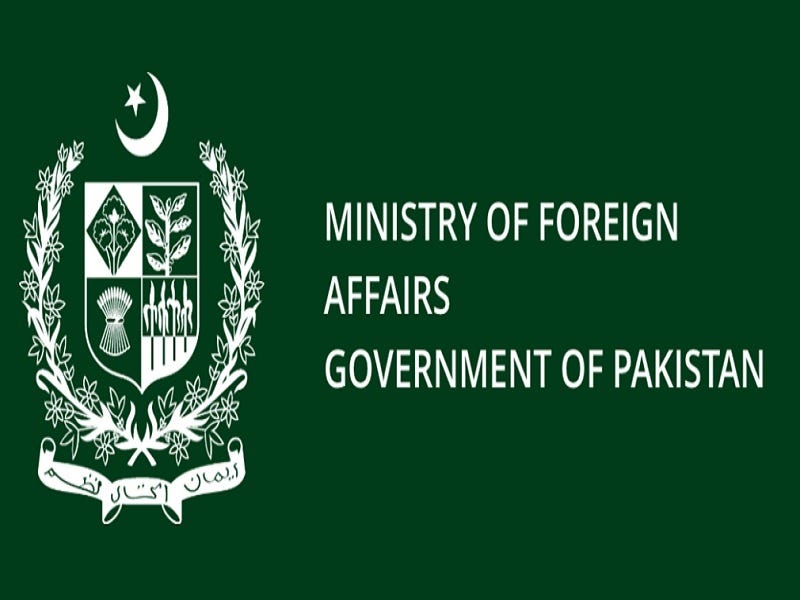Pakistan’s Response To The Taliban’s Claim That It’s A US Military Proxy Isn’t Convincing
It’s not surprising that they denied the Taliban Defense Minister’s claim, as is their right to do whether they’re telling the truth or not, but the purpose of drawing attention to their statement is to show that it isn’t credible and instead comes off as a desperate deflection from addressing legitimate questions.
The Pakistani Ministry of Foreign Affairs (MOFA) released an official statement on its website in response to the Taliban’s Defense Minister accusing their country of letting the US military use their airspace for sending drones to Afghanistan. It reads in full as follows:
“Responding to media queries, the Spokesperson said that Pakistan has noted, with deep concern, the allegation by Acting Defence Minister of Afghanistan regarding use of Pakistan’s air space in the U.S. counter-terrorism drone operation in Afghanistan.
In the absence of any evidence, as acknowledged by the Afghan Minister himself, such conjectural allegations are highly regrettable and defy the norms of responsible diplomatic conduct.
Pakistan reaffirms its belief in the sovereignty and territorial integrity of all states and condemns terrorism in all its forms and manifestations.
We urge the Afghan interim authorities to ensure the fulfillment of international commitments made by Afghanistan not to allow the use of its territory for terrorism against any country.”
Their response isn’t convincing since it deflects from answering the obvious questions that are on everyone’s mind. Left unaddressed is how exactly the American drone that allegedly assassinated the Al Qaeda chief in Afghanistan around a month ago even entered that landlocked country.
A prior report from the Pakistani media outlet Dawn, which is considered to be influenced if not outright controlled by that country’s US-installed post-modern coup regime, claiming that it came from Kyrgyzstan isn’t credible.
That Central Asian Republic is part of the CSTO, whose leaders agreed in December 2011 not to allow any third countries to deploy military forces on their territory without their allies’ consensual consent, which thus makes the scenario pushed by Dawn politically impossible.
Neighboring Uzbekistan, which is presently practicing a careful policy of multi-alignment between Great Powers and accordingly isn’t part of the CSTO, is also very unlikely to have inexplicably sacrificed its precious strategic autonomy by becoming the US’ regional military proxy.
This means that American drones are almost certainly entering Afghanistan from Pakistan since the only other alternative of transiting constitutionally neutral Turkmenistan is politically impossible, and even if Ashgabat allowed it to, that drone would still have to fly there from the faraway Black Sea Region.
The Pakistani MOFA conspicuously declined to address these objectively existing and easily verifiable factual observations, which is of course its international legal right to do but nevertheless comes off as extremely suspicious.
The second reason why its statement isn’t convincing is because the last part implies that the Taliban is violating its international anti-terrorist commitments, which in turn hints that it brought upon itself US-enforced and Pakistani-facilitated punishment.
This is also a subtle acknowledgement of the dangerous security dilemma that’s rapidly developing in Pakistani-Taliban relations whereby both have come to suspect the other of posing indirect threats to their objective national interests.
The origins and evolution of this trend were comprehensively described in the preceding hyperlink, but the pertinence of citing it in the present piece is that these preexisting mutual tensions were unprecedentedly exacerbated following Pakistan’s post-modern coup and the US’ latest drone strike.
From the Taliban’s perspective, it compellingly appears as though the US orchestrated the domestically driven and superficially ”democratic” overthrow of former Prime Minister Imran Khan as punishment for his refusal to host American military bases or at least approve drone transit through Pakistani airspace.
Nothing that the post-modern coup regime has said or done since then has allayed the Taliban’s concerns. To the contrary, they’ve only worsened them whether Islamabad meant to or not. The Pakistani MOFA’s recent response is the latest link in this trend, especially since it isn’t convincing.
It’s not surprising that they denied the Taliban Defense Minister’s claim, as is their right to do whether they’re telling the truth or not, but the purpose of drawing attention to their statement is to show that it isn’t credible and instead comes off as a desperate deflection from addressing legitimate questions.




